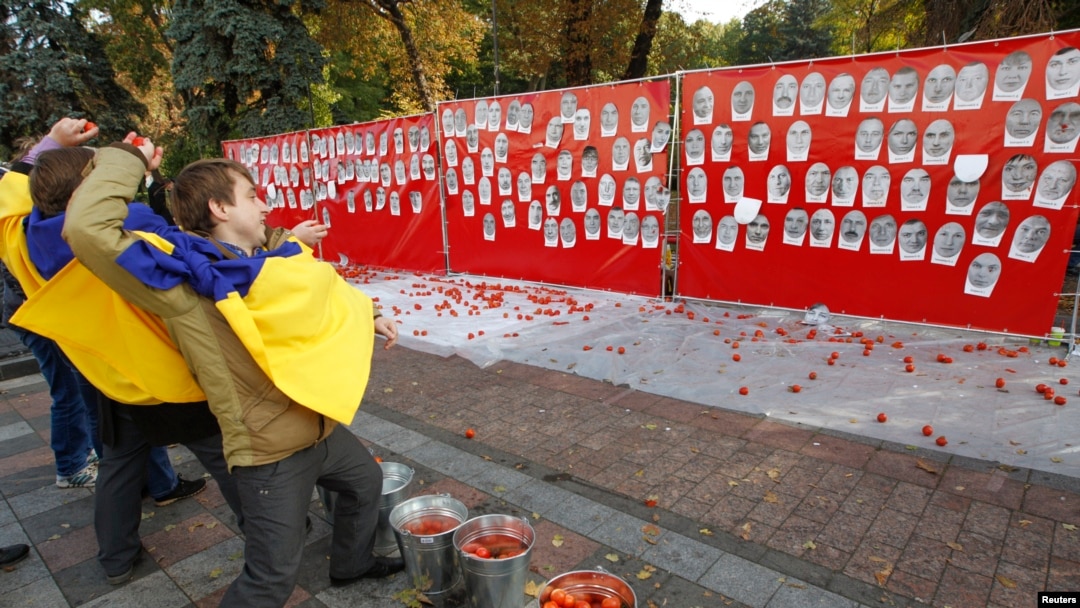Ukrainians are unhappy with their current government. In a recent poll conducted in Ukraine, only 7 percent of the respondents said they felt the fight against corruption was yielding any results, and only 6 percent saw successful reforms in the legal and law enforcement spheres.
Forty percent of the respondents admitted having bribed someone in the last 12 months.
The survey was carried out in September by the Washington-based International Foundation for Electoral Systems (IFES), which has been conducting polls in Ukraine regularly since 1994. The pro-democracy and election-assistance non-profit receives most of its funding from USAID and the United Nations.
Seventy-four percent of the respondents said they were unhappy with their government over the issue of limiting the influence of powerful businessmen known collectively as "oligarchs" and 67 percent believe the government is not doing enough to fight corruption. Still, half of the respondents said they want Ukraine to move closer to Europe and see democracy as the best form of government.
Ukrainians are not ready to launch a "third Maidan," says IFES's Rakesh Sharma, referring to several waves of mass demonstrations against Ukrainian leaders starting in 2004, the most recent of which led to the ouster of Viktor Yanukovych, the country's pro-Russian president, last year.
“People don’t think the reforms that have been promised by Maidan have come through," said Sharma, who is the director of IFES's Monitoring & Evaluation and public opinion research initiatives. "A majority of people, close to 70 percent, say that the only way the aspirations of Maidan can be met is through a new leadership that is not [tightly connected] to the status quo in Ukraine. There is a sense that the current leadership can’t push through the reforms [or] isn’t committed to the pushing the reforms that Maidan would have made necessary.”
Ukraine's armed forces, media and local authorities enjoy the greatest public trust. The high level of trust toward local officials shows the importance of decentralization and the empowerment of local communities. Almost half of the respondents said they believe democracy is the best form of government in Ukraine, and more than 71 percent of citizens said they are planning to participate in local elections.
More than half of the respondents expressed a positive attitude towards the European Union, Germany, the United States and NATO, while only 12 percent said they have positive feelings about Russia. Major changes have occurred in the minds of Ukrainians in the eastern and southern parts of the country that were the most sympathetic to Russia.
"Three years ago, the picture would be completely different: Russia would be definitely the preferred partner for people in the east and in the south," Sharma said. "It’s no longer the case."
According to the pollsters, changes in Ukraine are not taking place as fast as Ukrainians would like. However, if the government fails in carrying out reforms, Ukrainians might change their views about the direction in which their country should move, warns Wayne Merry, Senior Fellow for Europe and Eurasia at the American Foreign Policy Council in Washington.
"If Ukrainian people find themselves fundamentally disappointed by the new generation of their own politicians, and if they find themselves disappointed in their expectations by Europe, one should not expect that the achievements of the second Maidan are irrevocable," he said.
The latest IFES poll, which was the 25th annual survey conducted by the foundation in Ukraine, was conducted among 1,558 people living in all parts of the country but Crimea, the Black Sea peninsula annexed by Russian last year, and those parts of eastern Ukraine controlled by the Russia-backed separatists who launched a rebellion against Kyiv.


